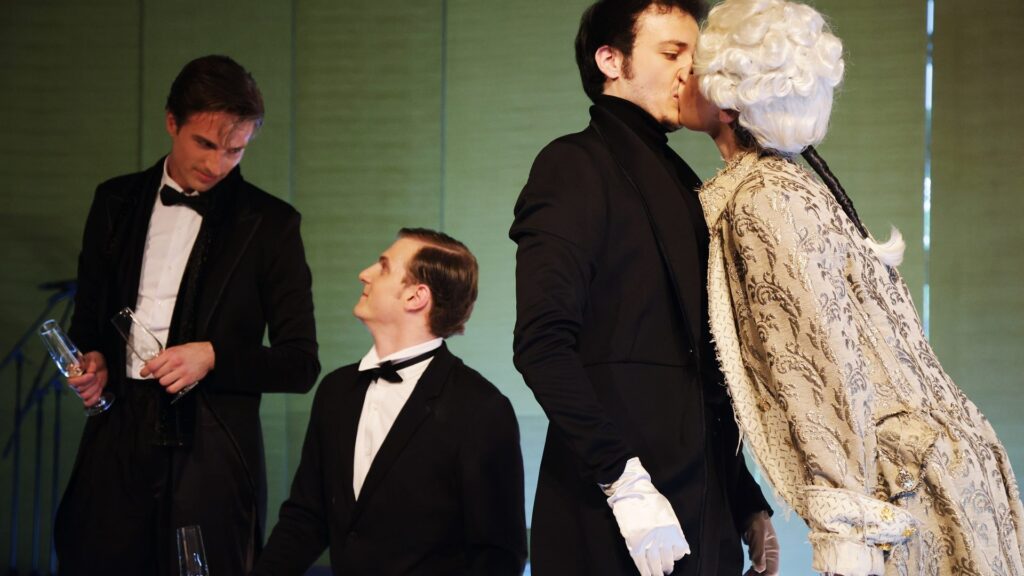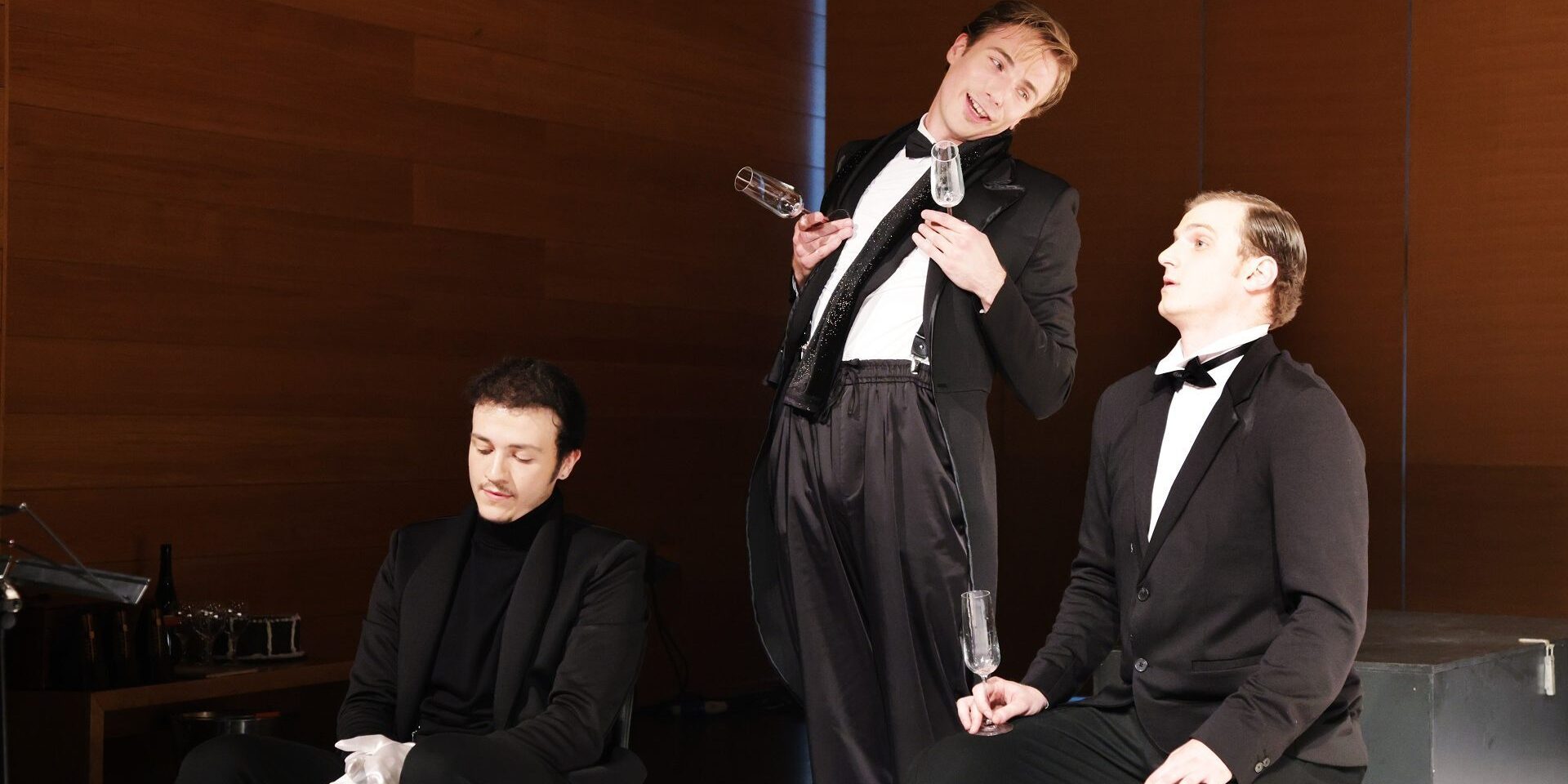Yugoslav Drama Theatre, Belgrade, premiere 27th May 2023
Artists will always aspire to reach perfection in their chosen field, whatever it may be, because it is the closest we get to beating death. Many work hard, some dedicate their life to the craft, however only a few are meant to be geniuses with the intangible brilliance that can’t be learned. Tragedy arises when, in the words of director Nataša Radulović, “music loses its purpose and becomes merely a tool of reaching immortality and endlessness”. As a trained classical musician herself, Radulović presents a loving but deeply critical representation of this competitive industry (which can certainly be translated to any competitive field in general).
For her first engagement at the Yugoslav Drama Theatre, Radulović has chosen the story of three young men who live and breathe art, to the point of losing themselves in it.
In Gubitnik (The Loser) Radulović combines Pushkin’s play, Mozart and Salieri with Thomas Bernhard’s The Loser, a novel about three young pianists aspiring to become the next Mozarts. These two source texts are well-matched, with Mozart being an obvious choice for a musical idol. These young pianist, Glenn Gould (Teodor Vinčić) Wertheimer (Joakim Tasić) and Noah (Stojša Oljačić) represent three archetypes of artists.
Noah is a hard working but more basic player who realises he can never be a genius, and therefore decides to quit playing entirely in order to stay sane. Wertheimer is more talented but still not a genius, which drives him into a downward spiral of madness. Lastly, there is Glenn Gould, an actual, Goldberg-variations playing genius, who persists in his hard work and gets famous enough to record his music and reach endlessness. Gould and Wertheimer eventually evoke a Mozart and Salieri dynamic, with Wertheimer desperately trying to find the intangible that makes Gould a genius.
These characters, although coherent and well written, sometimes feel a little distant and hard to relate to outside of the obvious topics of jealousy and striving for perfection. The dramaturgy could have been used to problematise the characters’ desire for perfection more deeply, such as the constant pressure on Wertheimer to fulfil his parents’ expectations.

Gubitnik, Yugoslav Drama Theatre. Photo: Nebojsa Babic
Each actor approaches his character in a necessarily distinctive way. Vinčić consistently crafts his charming but quirky Glenn Gould in a way that makes the genius trope feel fresh and fun. Tasić’s approach, on the other hand, is more reined in at the beginning, which allows him to build and finally lead his self-destructive Wertheimer to an eventual breakdown. Oljačić’s Noah enters the play as the most intense of the three but ends up the calmest, as a needed medium between two extremes of Glenn and Wertheimer.
The artist’s muse is personified firstly in a feminized Mozart, then in a love interest called Merry (both played by Lenka Petrović). Glenn’s relationship with Mozart is represented through singing and dance, which later turns into the similar artist-and-muse relationship with Merry. Petrović’s Mozart is wonderfully playful and nuanced, however the character of Merry is not given any storyline which aren’t dependent on her relationship with Glenn or her brother Wertheimer.
The performance takes place in JDP’s Studio, a space which automatically creates a feeling of increased intimacy between the performers and audience. The choreography is well-paced and performed on scenographer Jasmina Holbus’ minimalistic set in which the floor represents a piano keyboard. The work of the artists is represented firstly as a playful dance, which gradually turns into more strenuous exercises.
The physicality of the music in Gubitnik is gradually translated into more intense rope-skipping and running, as a representation of the characters’ inner turmoil. Especially exciting is a scene where Merry practices piano playing with a rope in her hand, while her brother holds the other side. Each time he gets more aggressive, Merry ties the rope one more time around her hand, a device which speaks about their relationship without them having to use words.
The performance ends with Wertheimer, Glenn and Noah conducting the public together. This dance macabre-like scene ties the story together nicely and puts a poetic semicolon on the tale of toxic jealousy and the quest for perfection. To my mind, this feeling of unfinishedness works well, articulating the overall idea that stories like these repeat themselves throughout history up until today.
Credits:
Ana Ogrizović is a Dramaturgy graduate from Serbia, recognised by multiple poetry, prose and playwriting competitions. She is currently pursing a Masters degree and editing her first poetry book.








